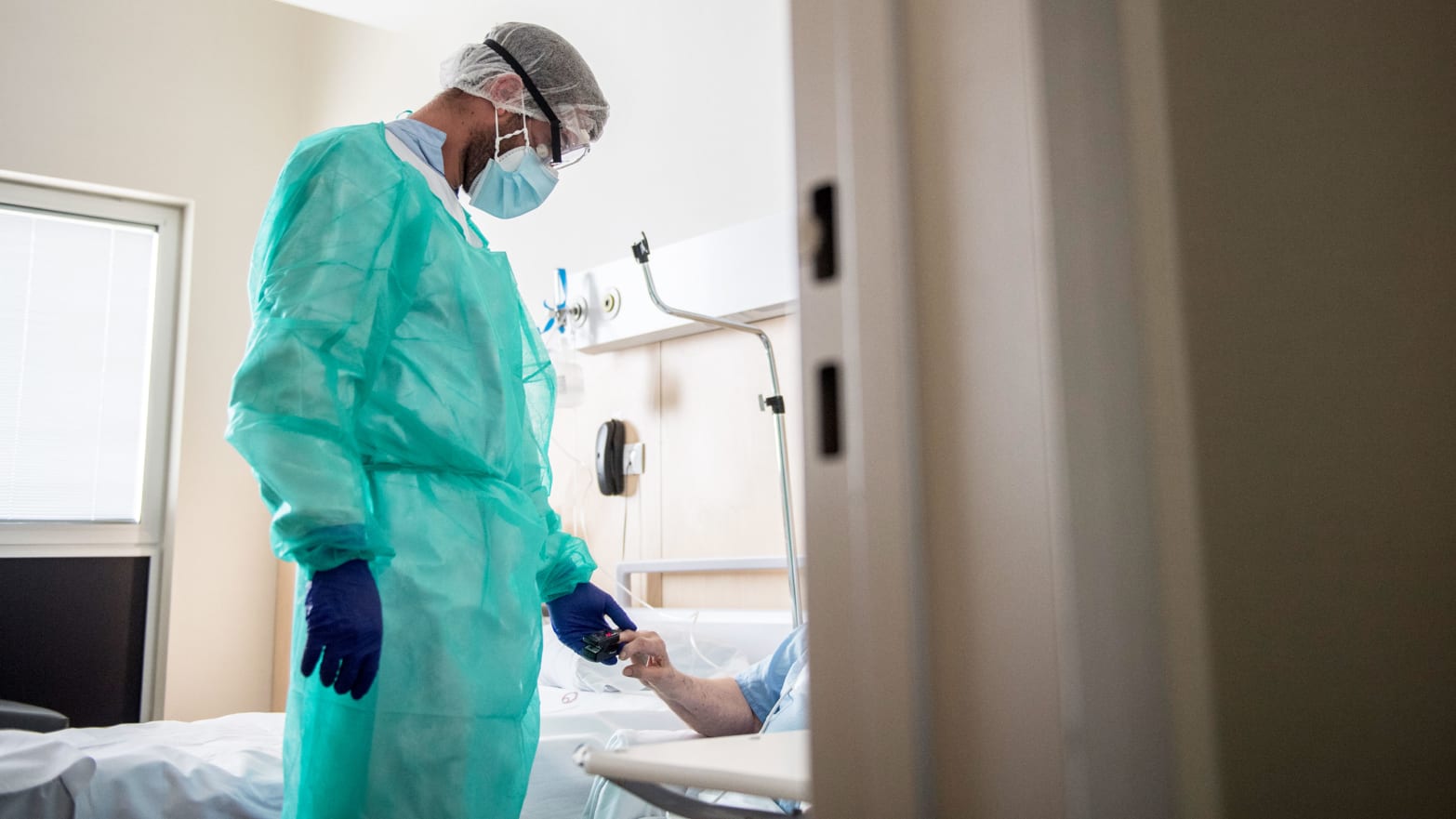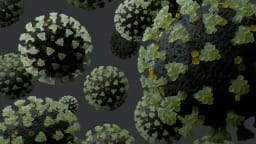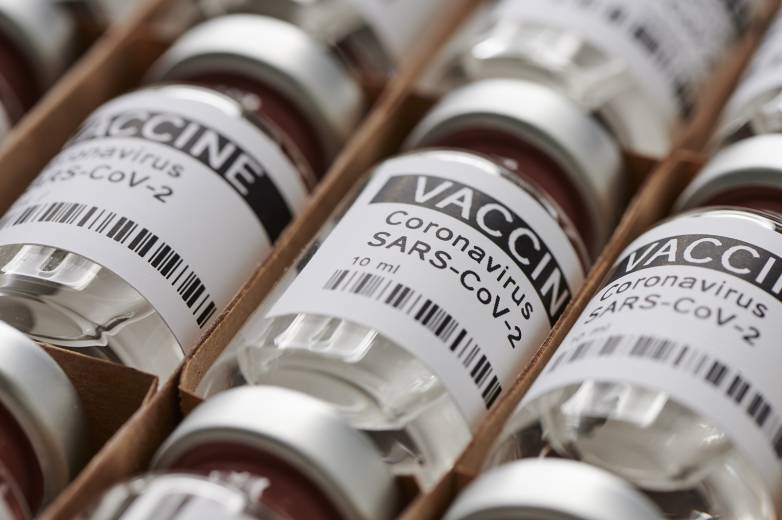CORONAVIRUS VARIANTS UPDATES
By Chris Smith @chris_writes
January 4th, 2021
British Health Secretary Matt Hancock said of the South African strain that it is a ”very significant problem,” and that’s why the UK blocked travel to the country.
Researchers still need to determine whether current vaccines will work on both strains, but some worry that the South African strain might not be affected by the vaccines.
Viruses like SARS-CoV-2, which causes COVID-19, mutate all the time. The novel coronavirus developed a significant mutation early in the pandemic, believed to have increased its infectivity. Researchers are following these mutations closely for many reasons. For starters, mutations are important for vaccine research, as the drugs will have to be adapted for new strains just as it happens with the flu. Secondly, genetic sequencing can prove reinfection with the novel coronavirus, and COVID-19 immunity is another topic the world needs more data on. Finally, knowing exactly how these strains evolve and mutate is important for crafting new protocols to prevent and deal with infections.
Two countries announced two significant coronavirus mutations in the final weeks of 2020. The UK’s B.1.1.7 and South Africa’s 501.V2 both made the news in a matter of days. Both are more infectious than their progenitors, initial reports said, but we mostly focused on the UK variant. However, British experts believe the South African strain might be more dangerous than B.1.1.7, as it could have developed changes that would allow it to evade vaccines.
B.1.1.7’s increased infectivity seems evident, as the UK is experiencing a major spike in cases, registering new pandemic records for the country. The strain doesn’t cause more severe COVID-19, and people who survived the illness do not seem to be at risk of reinfection. Dr. Anthony Fauci said as much a few days ago, implying that vaccines would also work against this variant. Vaccine makers, including BioNTech and Moderna, said they expect their drugs to work on B.1.1.7 but require more testing.
The 501.V2 strain has some similarities with B.1.1.7, but they’re not identical. They both include collections of several distinct mutations. Reports from South Africa indicated that the mutation might also impact the severity of the illness, with more young patients seen developing complications.
British Health Secretary Matt Hancock told BBC on Monday that the South African strain is more concerning than B.1.1.7.
“I’m incredibly worried about the South African variant, and that’s why we took the action that we did to restrict all flights from South Africa,” he told the BBC. “This is a very, very significant problem … and it’s even more of a problem than the UK new variant.”
While Hancock did not elaborate or share additional data to support his claims, CNBC reports that researchers are worried that the South African strain might evade vaccines.
“They both have multiple, different mutations in them, so they’re not a single mutation,” Oxford University’s John Bell told Times Radio. “And the mutations associated with the South African form are really pretty substantial changes in the structure of the (virus’ spike) protein.”
Bell said there were questions as to whether the Pfizer/BioNTech and AstraZeneca/Oxford vaccines could be disabled by 501.V2. He said the Oxford drug team is investigating the effects of the two strains on the vaccines. His gut feeling was that the drug would work against B.1.1.7, but he’s uncertain of the South African version.
The expert said that if the vaccines don’t work against one of the new strains, the drug could be adapted. The process would not take a year. BioNTech CEO Uğur Şahin said a few weeks ago that the company would need six weeks to modify the vaccine for a new strain.
A similar thing happens with the flu vaccines that have to be updated every year to account for the various mutations some of the flu viruses might have acquired.

Chris Smith started writing about gadgets as a hobby, and before he knew it he was sharing his views on tech stuff with readers around the world. Whenever he's not writing about gadgets he miserably fails to stay away from them, although he desperately tries. But that's not necessarily a bad thing.

As California continues to ride its worst wave of the COVID-19 pandemic, public health officials have more unsettling news: Four cases of a worrisome, potentially more infectious new coronavirus variant have been detected in California.
The new strain, first detected in the United Kingdom, also has been seen in Colorado and Florida and 33 other countries.
Last week, San Diego County reported it had identified the new variant, called B.1.1.7, in a 30-year-old man with no travel history. Gov. Gavin Newsom announced the discovery in a live streamed event with Dr. Anthony Fauci, a leading national voice in the pandemic. Over the weekend, San Diego county health officials reported three additional cases.
Fauci said this news was expected, since international travel is ongoing and viruses generally mutate. “RNA viruses, they make a living out of mutating,” he said. “The more you replicate the more you mutate.”
However, the lack of travel history in the San Diego case is an indicator that the new form of the virus is circulating among the community, health officials there said.
“What’s really important is that detecting this lineage here doesn’t really change what we need to do other than we need to do it better,” Dr. Kristian Andersen, an infectious disease and genomics expert at Scripps Research in San Diego, said in a news conference. That includes wearing masks and maintaining social distance.
Here’s what YOU need to know about the new coronavirus strain.
How was it discovered?
The new virus variant was first reported by England’s public health agency following a surge of cases in the southeastern part of the country. The first two samples were discovered in Kent and in London in September.
While mutations in viruses are common, this particular strain stood out because it carries more genetic changes than is typical, according to researchers.
What’s the concern with this coronavirus variant?
Public health officials say the new strain seems to be more easily transmitted than the standard form of the virus. This means people who are exposed are more likely to become infected.
According to health officials in the United Kingdom, evidence shows that infection is growing more rapidly in geographical areas where this variant is found. A study from The Centre for the Mathematical Modelling of Infectious Diseases in London shows this particular strain is 56% more transmissible. The study is still being peer-reviewed.
Dr. Mark Ghaly, California’s health secretary, explained it like this in a recent news conference: “For COVID to enter a human cell, it needs to bind to a receptor, a sort of front door on a human cell,” he said. “And the new, mutated COVID virus seems to bind a little tighter, a little more easily and enter the cell of the human body easier than our current COVID virus.”
It remains unclear how this mutant form of the virus has contributed to the current surge in California. Officials have said its prevalence here is still likely low. On Dec. 21, Ghaly said that California had been checking thousands of specimens daily over the last month, looking for mutations.
“We’re concerned because of the unknowns,” Ghaly said. “We’re concerned that we aren’t sure how this impacts the broadscale efforts to contain and mitigate the virus as it exists now.”
What is California doing in response?
The California Department of Public Health said health care providers are collecting specimens for genetic sequencing, and the state is analyzing samples suspected of being variant strains.
“As variants and mutations are found, that information is used to inform public health decisions and critical information is shared with the public,” the department said in an email.
How widespread is the new strain?
After the new variant was detected in the United Kingdom, some 40 countries restricted travel from the U.K. The variant has since been reported in France, Japan, Spain, Sweden and Canada among other countries.
The first known U.S. case, in a Colorado National Guardsman in his 20s, was reported on Dec. 30.
Two variants that share some mutations with the U.K. variant also have been reported in South Africa and Nigeria, according to the U.S. Centers for Disease Control and Prevention.
“We know there’s more. We don’t know how many,” said Andersen, the infectious disease expert in San Diego. “Its prevalence for now is relatively low.”
Will it make me more sick?
Right now, there’s no evidence that this new COVID variant has a higher fatality rate or causes more severe illness than the currently predominant strain, according to the CDC. A recent U.K. government study compared patients infected with the new variant to those with the predominant strain and found no statistically significant differences in severity of illness, deaths or reinfection. Scientists around the world are still studying the U.K. variant, however, and more answers may come soon.
Will currently authorized vaccines protect against this new strain?
Scientists believe they will. Fauci told Newsom last week that the variant “doesn’t seem to evade the protection that’s afforded by the antibodies that are induced by vaccines.” But scientists are testing the variant against the currently authorized vaccines made by Pfizer and Moderna.
The CEO of AstraZeneca, which is developing another COVID-19 vaccine candidate, told the London Times that the company’s scientists believe the vaccine will protect against the new variant. But some scientists believe it’s possible that the U.K. variant, or future variants, may prove tougher for vaccines to overcome.
* CalMatters COVID-19 coverage, translation and distribution is supported by generous grants from the Blue Shield of California Foundation, the California Wellness Foundation and the California Health Care Foundation.
POSTED IN COVID-19 INFORMATION HUB
'Different Than Anything We've Seen Before': What
Experts Know About The New Coronavirus Variant
When Sara Sawyer read there was a new variant of the coronavirus rapidly spreading around the United Kingdom recently, she wasn't surprised.
By Moe Clark
January 2, 2021
When Sara Sawyer read that there was a new variant of the coronavirus rapidly spreading around the United Kingdom recently, she wasn't surprised. For the past 15 years, Sawyer, a virology professor at the University of Colorado Boulder, has studied how infectious diseases are transmitted from animals to humans, including how viruses mutate.
What did catch her attention was how much — and how quickly — the new variant, called B.1.1.7, had mutated before European public health officials caught on. "We have of course seen many variants arise," said Sawyer, who's also a co-founder of the Boulder-based startup Darwin Biosciences.
"There's no getting away from variants. They are just a side effect of an imperfect duplication of genetic material," she added
"Usually what we see are genetic variants that are one or maybe two bases different from things that we have seen before," she said. "What's unusual about this variant is it's not one or two mutations, it is 14 to 17. It's different than anything we've seen before."
Colorado public health officials on Tuesday identified the United States' first case of the seemingly more transmissible version of the virus and announced another probable infection on Wednesday.
Both people infected are Colorado National Guard personnel who were deployed on Dec. 23 with four others to the Good Samaritan Society nursing home in Simla to provide support during an active COVID-19 outbreak. Neither members of the guard had traveled internationally in the weeks before their diagnoses, according to public health officials
Although the symptoms caused by the new variant appear to be the same, preliminary research shows that the B.1.1.7 version of the virus is 50 percent to 70 percent more transmissible, according to Eric France, chief medical officer at the Colorado Department of Public Health and Environment.
"So, if you're ill, instead of only making two or three other people sick, you might actually spread it to four or five people," France said. "If it's more transmissible, that means that we'll have more cases in our communities and the number of cases will rise quickly."
"This could be overwhelming for our health care systems," he said.
'Harder, not easier'
The Florida Department of Health, meanwhile, announced via Twitter that this state also has seen the mutated virus.
"Florida has evidence of the first identified case of the UK COVID-19 variant in Martin County. The individual is a male in his 20s with no history of travel. The department is working with the CDC on this investigation. We encourage all to continue practicing COVID-19 mitigation," the agency said.
"At this time, experts anticipate little to no impact on the effectiveness of the COVID-19 vaccine," the agency continued.
Sawyer, in Colorado, said the increased transmission rate is cause for serious public health concern.
"It means that our own laziness at following public health guidelines is now going to become even more painful to us than it was before because we're going to have a lot more infections, we're going to have a lot more transmission chains, and things are going to get harder, not easier."
She said there are still a lot of unknowns when it comes to the efficacy of the vaccine against the variant. But she's optimistic.
"When you get a vaccine, your body does not just make one antibody flavor directed at that vaccine, your body will make a whole repertoire of different types of antibodies," she explained. "So while you do have some mutations here, it's not going to affect all of the positions where all of those antibodies bind."
Given the detection of the new variant of the COVID-19 virus, Colorado Gov. Jared Polis is requesting that the Centers for Medicare & Medicaid Services allow the state to temporarily pause visitation for nursing homes until all residents can be vaccinated.
The state lab is still working to confirm whether the second Colorado National Guard member has the new version of the virus.
"We anticipate the time frame to be within the next week. This particular sample was a little bit less strong," said Rachel Herlihy, the top epidemiologist with the Colorado Department of Public Health and Environment. "So it's taking a little bit more work to pull out the sequence from the patient sample."
The state lab discovered the variant using the same techniques used to identify COVID-19 positive patients: the PCR test, also called a molecular test. The test looks for the presence of three novel coronavirus genes on a nasal swab sample using a lab technique called polymerase chain reaction.
A positive result for COVID-19 infection occurs when at least two out of the three genes are found. The third gene, called the S gene, doesn't always appear on the PCR test because of the mutations. When this happens, scientists flag the sample as a potential variant.
"To investigate further, we do viral genome sequencing," said Emily Travanty, scientific director for Colorado's Laboratory Services Division.
"We look at the entire COVID-19 virus genome using next-generation sequencing technology to create a complete fingerprint of the viral RNA found in the individual patient sample."
The sequencing process takes longer than the typical COVID-19 PCR test, which requires a little over a day for the state lab to complete.
"[It] can take three to five days to generate all of the data necessary because we look at every position in the entire viral genome and compare it to known sequences across the country as well as what's been circulating in Colorado," Herlihy said.
Higher transmission rate does not mean new version of virus is more deadly
It's too early to know exactly why the new variant is more transmissible, France said. One hypothesis is that the new version of the virus is able to stick onto human cells more efficiently.
"So if that's the case, it could take fewer virus particles for a given person to become sick, and any given virus will have a better chance of causing an infection," France said.
Sawyer said it's important for people to understand that, just because the new version of the virus is spreading faster, it doesn't mean that it's more deadly.
"There is a small possibility that what we're doing here is watching this virus mutate into its more benign, seasonal form," she added. "So it's not necessarily a given that it's mutating into some super virus."
She used the 1918 flu as an example.
"That virus was actually around for several years after that pandemic," Sawyer said. "It's just that it attenuated itself so that it wasn't as harmful anymore. So there is precedent for what I'm saying. It's possible."
She said modern technology allows scientists to watch how the virus changes in real time. "We have a lot of tools now that we did not have at the beginning of this pandemic," she said. "So I think that we are prepared to handle this variant."
Sawyer expressed some hesitation about how quickly some of the vaccines have moved through FDA trials.
"I am a highly vaccinated citizen and I want to be careful about casting any doubt on vaccines. But I think it's really important that people know that when you do a vaccine trial, you have to look for four things," she said. "You look for short-term safety, short-term efficacy — that's protecting against the virus — long-term safety, and long-term efficacy. And in a four-month trial, you can only look at two of those things."
Given the seriousness of the pandemic and the toll it's taken around the world, the "cost-benefit ratio may still make it worthwhile for elderly people," she said.
"But can we justify giving first-of-their-class vaccines that have not been ever tested for long-term safety to a bunch of 25-year-old mothers in the world? I don't know if we can," she said. "That's what keeps me up at night."
This column is from the Colorado Newsline, an affiliate of the nonprofit States Newsroom, which includes the Florida Phoenix.
This story was originally published by the Florida Phoenix. For more stories from the Florida Phoenix, visit FloridaPhoenix.com.






